Once upon a time, “Made in the USA” Lex Luger and the Native American Tatanka were the best of friends. Together, the two All-Americans would demolish whatever unpatriotic force stood in their way.
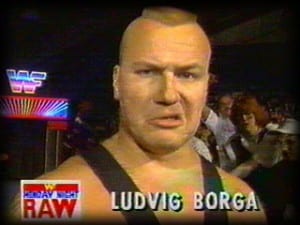
All this changed in the summer of 1994, when, after weeks of speculation, Tatanka broke the unfortunate news: Lex Luger had sold out to the Million Dollar Man, Ted DiBiase.
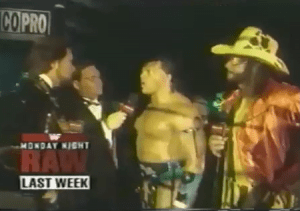
Was it true? Had Lex traded in the red, white, and blue for DiBiase’s green? No, said Luger. And with that confusion cleared up, both good friends moved on with their lives and pursued successful, championship-filled careers.
But not really. Instead, Tatanka insisted Luger was lying, while Lex embarked on a lousy PR campaign so desperate and monotonous, he’d long for those weeks-long bus trips from the summer before. Then again, who among us hasn’t cursed our own Lex Expresslessness?
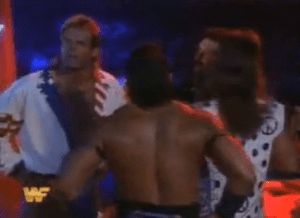
The following weeks of television could be summed up as follows: Tatanka said Lex had sold out. Lex said no. Ted DiBiase said Lex had sold out. Lex said no. The whole “he said, she said” served no discernible purpose but to quickly win a round of “Six Degrees of Kevin Bacon.”
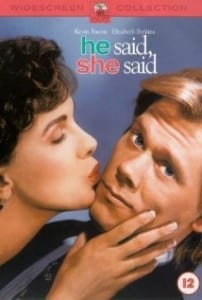
Besides the bone-dry drama of empty allegations and denials, the problem with this angle was that neither possible outcome made any sense at all. Why would Lex deny selling out if, sooner or later, he’d start teaming up with IRS while Ted DiBiase accompanied him to the ring?
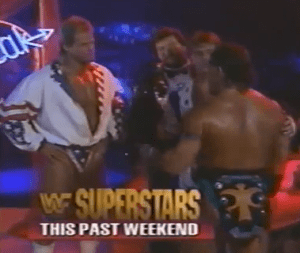
I mean, did he expect to keep it a secret forever and have the Million Dollar Man come to the ring in disguise for every match? Maybe as a bald eagle?
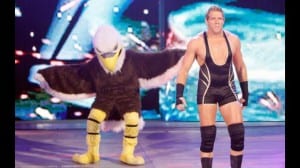
On the other hand, why would Ted DiBiase lie about having signed Lex Luger? Did he think that if only he wished hard enough, he could make his wacky dream a reality? Keep in mind that this was the same manager who thought paying Brian Lee to pretend to be The Undertaker would be a good investment.
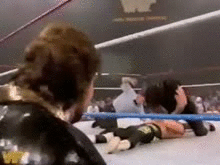
(Speaking of which, can anyone explain the logic of that angle? If Ted had wanted a pathetic knock-off of a popular character but with none of the super-powers, Arachnaman would have worked for cheap.)
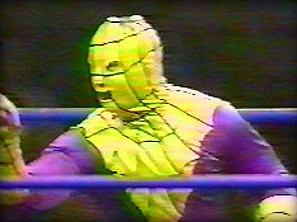
With every Raw, the questions kept piling up. Namely,
- “When is this angle going to end?”
- “Why is this crap on my TV?” and
- “Who the hell cares”?
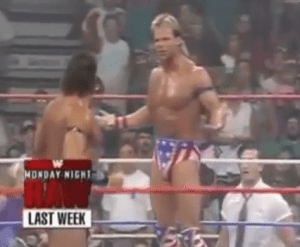
It was almost as if someone behind the scenes was trying to prove some insane point. Every week, Tatanka repeated the same tune — not the one about buffalo; the one about Lex selling out.
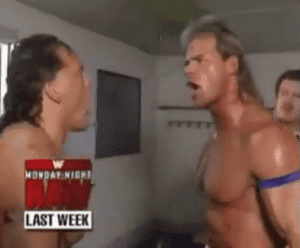
And every week, there would be some new, insignificant scrap of evidence to back him up. Sometimes DiBiase would watch Lex’s matches (ordinarily something no one would want to do).
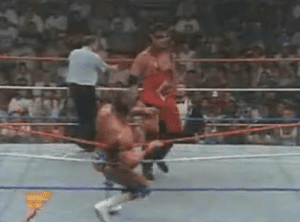
Once, Lex stormed the Corporation’s dressing room and yelled at a confused Nikolai Volkoff. Amidst all the angry screaming, Tatanka walked in and figured Luger was bosom chums with the Corporation, and that he had caught the American Original red-handed. Possibly in some sort of lovers’ quarrel, we don’t know.
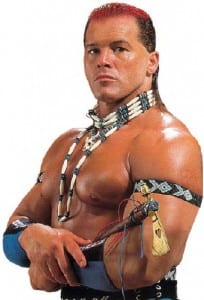
Hardly a week went by without Tatanka cutting an angry promo accusing Luger of selling out, and Luger denying it. The entire feud amounted to a months-long argument of “Uh-huh!” vs. “Nuh-uh!”. Macho Man summed up the whole angle perfectly, theorizing that Luger was either “telling the truth, or he’s lying!”
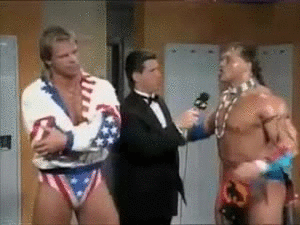
Finally, the most tedious feud of 1994 came to a head at Summerslam, but not before a 99-cent phone poll declared Lex guilty.
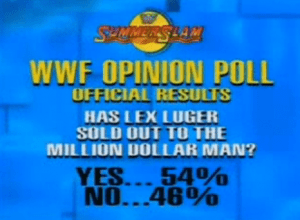
These were the same fans who later declared OJ not guilty, though, so what did they know?
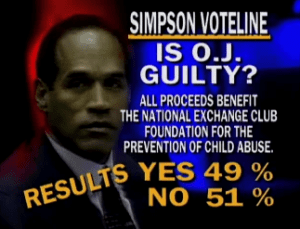
In case no one at home had grasped the complexity of the story line, Tatanka yelled to the camera that Lex had sold out. Then he accused Luger face-to-face of having betrayed his fans and self-respect for money. Except he didn’t use that exact phrase. Care to guess what he did say?
If you said, “sold out,” you’re about 2% of the way there, because he ended up saying it several dozen more times. The term had been used so often by then that the audience had grown completely numb to it, like hearing Vince McMahon say, “maneuver” 200 times in a row.
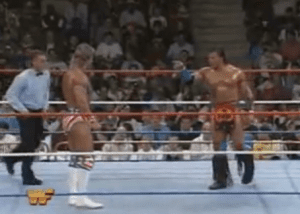
In the worst match of a card headlined by Undertaker vs. Undertaker, Lex and Tatanka aimlessly exchanged strikes and slams until DiBiase showed up, distracted Lex with money, and allowed Tatanka to get the win via a roll-up.
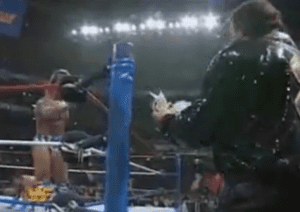
Lex pleaded with the Native American until Tatanka attacked Luger from behind. So it was Tatanka who had sold out all along, not Lex!
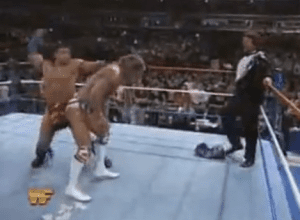
See, it was all a ruse to set up Luger, with whom DiBiase had zero prior history or motivation to screw over.
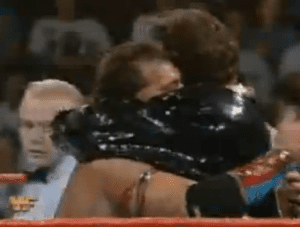
The Million Dollar Man then gloated about how he had fooled everybody…
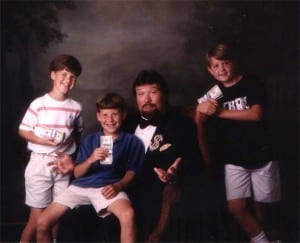
…while Lawler for some reason praised Ted as the smartest man in wrestling simply for tricking the audience (A young editor of WWF Magazine would take these comments to heart).
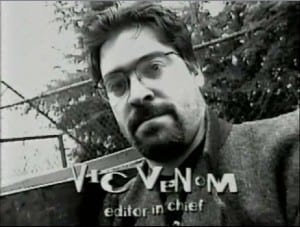
All DiBiase really accomplished with his summer-long swerve was to incur the wrath of Lex Luger, who otherwise wouldn’t have had any reason to feud with Ted and his Corporation. Luckily for Ted, this was the “Made in the USA” version of Lex Luger, a babyface so ineffectual as to make Ted’s Corporation look like the Four Horsemen.
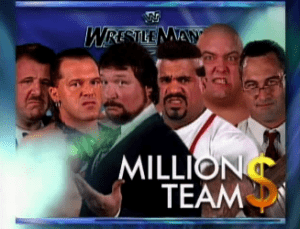
The purpose of this dud of an angle? Vince had to ham-fistedly prove a point about his steroid trial that summer. See, just because someone was accused of wrongdoing didn’t mean he wasn’t totally 100% innocent. If Lex Luger could be framed, so could Vince McMahon!
And I guess that meant Dr. Zahorian was like Ted DiBiase? And that it was the federal prosecutor who was actually distributing the steroids, not Vince? Okay, I guess the parallels ended there.
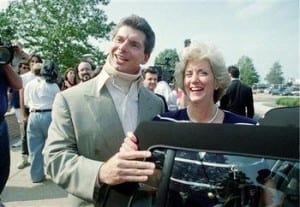
In other words, this angle was the second-most insulting analogy for the McMahon steroid trial in history. But you’ve got to admire McMahon’s chutzpah for using Lex Luger as a symbol of his innocence on steroid charges.

Tatanka would wrestle the rest of his WWF contract as an underachieving heel who sometimes wore a suit and, like the rest of the Corporation, never won any titles. Speaking of not winning titles, Lex Luger would remain a babyface for the rest of his Federation tenure before selling out his WWF fans and signing with a certain super-rich “Ted.”
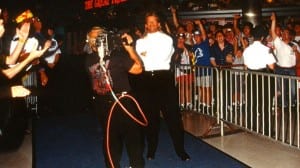
Hmmm… maybe Tatanka was right all along! I wonder what that means for Vince…


